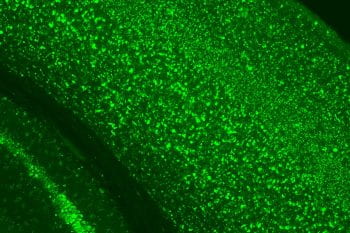New research in animals by scientists at Washington University School of Medicine in St. Louis and the Roslin Institute at the University of Edinburgh in Scotland suggests enzyme replacement therapy may slow brain degeneration. The Washington University researchers evaluated the therapy in mice, and researchers in Scotland evaluated the treatment in a sheep model of the disease. The findings underscore potential treatments for the genetic condition, also known as CLN1 disease.
Research offers clues for treating fatal neurological disorder in kids (Links to an external site)
